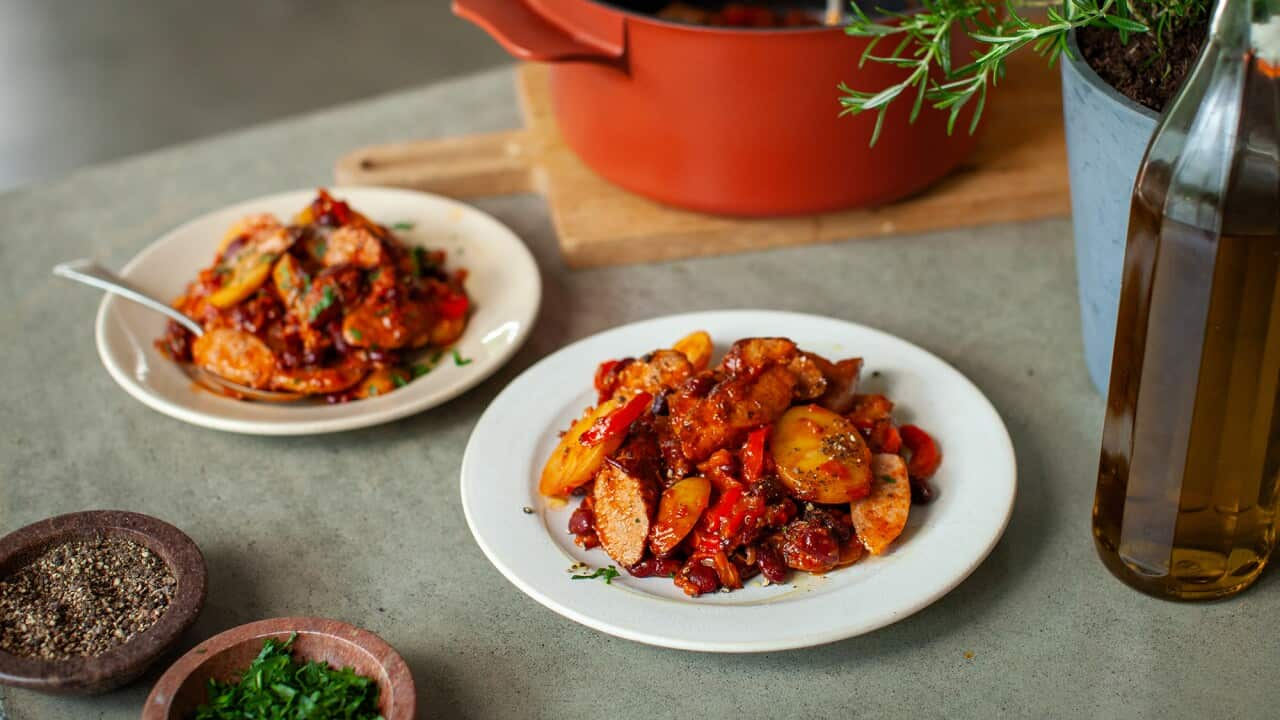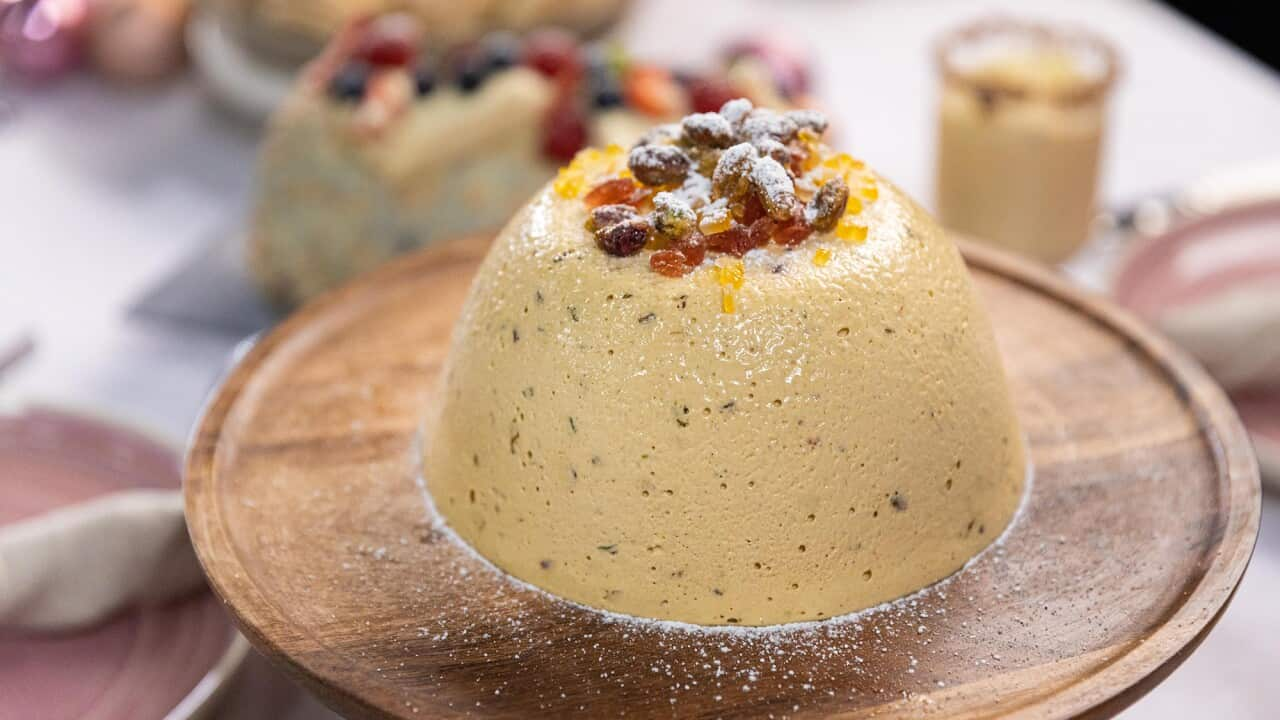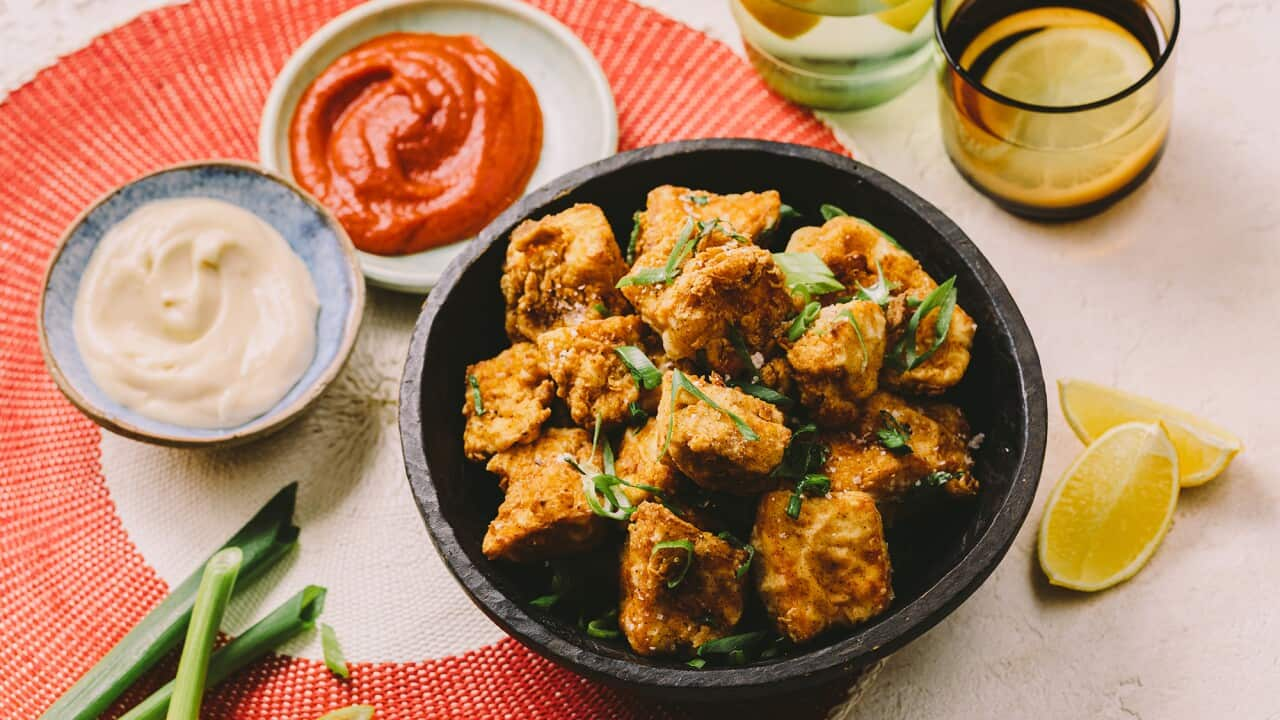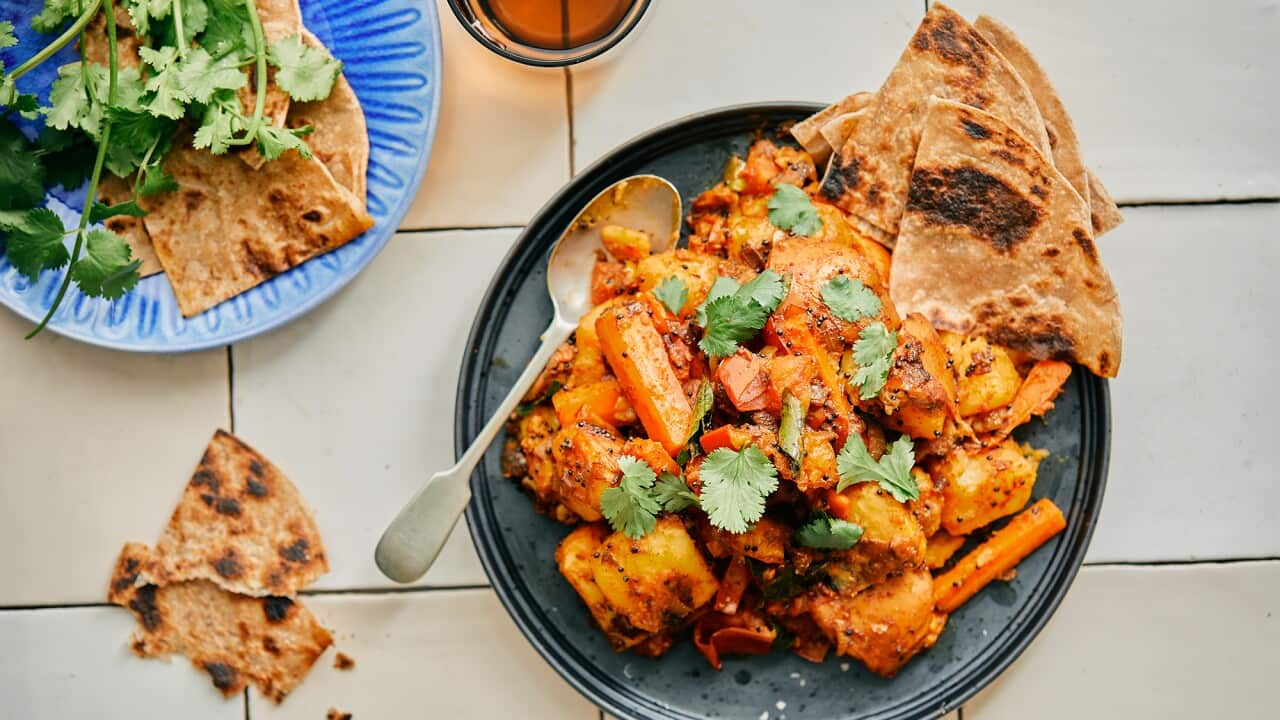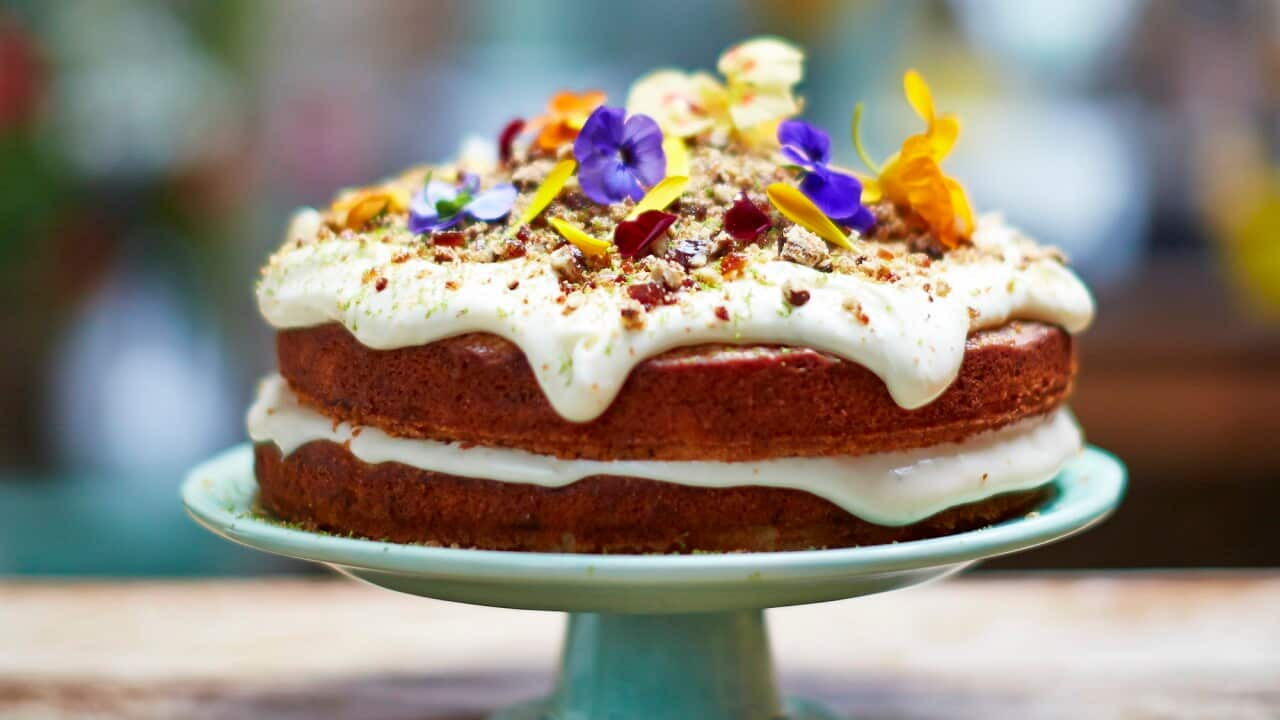serves
6
prep
30 minutes
cook
4:30 hours
difficulty
Easy
serves
6
people
preparation
30
minutes
cooking
4:30
hours
difficulty
Easy
level
Stream free On Demand

Soulful Food
episode • The Cook Up with Adam Liaw • cooking • 24m
G
episode • The Cook Up with Adam Liaw • cooking • 24m
G
Ingredients
- 1 ½ star anise
- 1 ½ tsp black peppercorns
- 1 ½ tsp pepperberries (whole)
- 1 tsp bush tomato
- 2 tbsp vegetable oil
- 2 kg kangaroo tail pieces (see Note)
- 700 ml port
- 200 ml red wine
- 2 tbsp (50 g) tomato paste
- 1.5 litres beef stock (or water)
- 4 - 5 fresh lemon myrtle leaves
- 2 brown onions, roughly chopped
- Cooked pasta of your choice, roughly chopped flat-leaf parsley, roughly chopped toasted macadamias, extra virgin olive oil, to serve
Instructions
- Preheat the oven to 140˚C (fan-forced). In a large, heavy-based saucepan, toast the star anise, peppercorns, pepperberries and bush tomato until fragrant, then remove and set aside.
- Return the pan to the heat with the oil and sear the kangaroo tail in batches, until golden on all sides, then remove to a plate and set aside.
- Pour the port and red wine into the pan and reduce down to two-thirds. Stir through the tomato paste, then return the spices and kangaroo tail to the pan with the beef stock, lemon myrtle and onions. Cover and bake for 4 hours, or until tender.
- Once cooked, gently remove the kangaroo pieces to a plate and cook the braising liquid over medium heat, until reduced to two-thirds, and thickened. Remove the kangaroo meat from the bones and return to the pan.
- Serve the kangaroo tail ragu with cooked pasta and top with some flat-leaf parsley, macadamias and drizzle with a little olive oil.
Note
- Kangaroo tail is available from some butchers and specialist retailers; this recipe was developed using two packets of tail pieces.
Photography by Jiwon Kim.
Want more from The Cook Up? Stream all the seasons here and for free at
Cook's Notes
Oven temperatures are for conventional; if using fan-forced (convection), reduce the temperature by 20˚C. | We use Australian tablespoons and cups: 1 teaspoon equals 5 ml; 1 tablespoon equals 20 ml; 1 cup equals 250 ml. | All herbs are fresh (unless specified) and cups are lightly packed. | All vegetables are medium size and peeled, unless specified. | All eggs are 55-60 g, unless specified.
Stream free On Demand

Soulful Food



